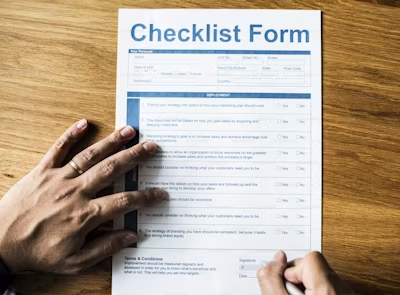
Pursuing a Bachelor of Technology (B.Tech) degree is a popular choice for students interested in engineering and technology. This academic path not only opens up diverse career opportunities but also equips students with the necessary skills to tackle the challenges of a rapidly evolving technological landscape. Understanding the eligibility criteria for B.Tech after completing the 12th grade is crucial for prospective students to ensure they are well-prepared to embark on this demanding yet rewarding journey.
Overview of B.Tech Program
The B.Tech program is a gateway to the engineering profession, offering in-depth knowledge and hands-on experience in various engineering disciplines. Typically, a B.Tech course spans four years, during which students undergo rigorous training in theoretical as well as practical aspects of engineering. The program is designed to foster innovation, critical thinking, and problem-solving skills, preparing graduates for professional roles in industries such as software, civil engineering, mechanical engineering, and beyond.
Basic Eligibility Criteria

The foundational eligibility requirement for enrolling in a B.Tech program is the completion of higher secondary education or its equivalent. Prospective students must have finished their 12th grade from a recognized board or institution. The specifics, however, can vary depending on the country and the educational system. Here are the general criteria that most institutions agree upon:
Educational Qualifications
Students must have passed their 12th-grade examinations with a focus on the science stream. It is essential that they have studied Physics, Chemistry, and Mathematics as core subjects. These subjects form the cornerstone of engineering education, providing the necessary background knowledge required to cope with the B.Tech curriculum.
Minimum Marks Requirement
Institutes often set a minimum mark requirement to qualify for admission. This benchmark is typically around 50% to 60% in the core subjects of Physics, Chemistry, and Mathematics. Some prestigious institutions or competitive programs might require higher marks, reflecting the demand and rigor of the course.
Entrance Examinations
A significant aspect of B.Tech eligibility involves performance in entrance examinations. These tests are designed to assess a candidate’s aptitude and proficiency in the essential subjects relevant to engineering studies. Here are some of the most common entrance exams that students may need to undertake:
National Level Exams
- JEE Main – The Joint Entrance Examination Main is one of the most prominent entrance tests for engineering aspirants in India. It serves as a gateway for admission to various national institutes like NITs and IIITs, as well as a qualifying test for JEE Advanced.
- JEE Advanced – This exam is required for those who wish to pursue their engineering degree at the prestigious Indian Institutes of Technology (IITs).
- BITSAT – The Birla Institute of Technology and Science Admission Test is another crucial exam for students aiming to enter BITS Pilani and its other campuses.
State Level and Private Exams
Many states conduct their own entrance exams for admission to state-level engineering colleges. Additionally, private universities may hold separate tests or admissions criteria, offering another avenue for students to secure a spot in a B.Tech program.
Age Limit
Most B.Tech programs do not strictly enforce an age limit. However, some institutions might have specific age criteria, especially for government-funded programs. It is advisable to check the specific requirements of each university or college to which one intends to apply.
Reservation and Quotas
In India, there are reservation policies in place for certain categories of students, including Scheduled Castes (SC), Scheduled Tribes (ST), Other Backward Classes (OBC), and economically weaker sections. These reservations can affect the cut-off marks in entrance exams and eligibility criteria, providing opportunities for underrepresented communities to pursue engineering education.
International Students

For international candidates wishing to pursue a B.Tech in another country, the eligibility might include proficiency in the English language, usually demonstrated through exams like TOEFL or IELTS. Additionally, their previous educational qualifications must be equivalent to the 12th grade in the host country, often requiring a credential evaluation.
Preparing for Admission
Prospective students should focus on strengthening their foundation in Physics, Chemistry, and Mathematics to excel in entrance exams. Participating in coaching classes or online courses can enhance their preparation. Moreover, staying updated with the admission guidelines and deadlines of preferred institutions is crucial to navigate the application process effectively.
Conclusion
Securing admission into a B.Tech: Eligibility Criteria After 12th program requires thorough preparation and a clear understanding of the eligibility criteria. By meeting these prerequisites and performing well in entrance exams, students can take a significant step toward a successful career in engineering. The journey might be challenging, but the rewards of an engineering career are immense, offering endless opportunities to innovate and impact the world positively.







